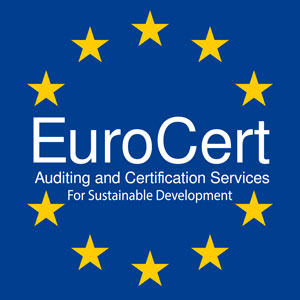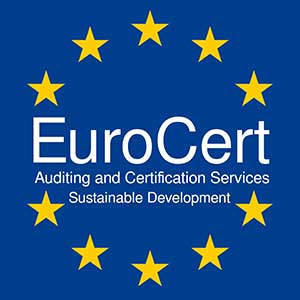Best practices in sustainability: Ford, Starbucks and more
While the vast majority of US companies are asleep at the wheel when it comes to tackling climate change, these corporations are best in class, according to a new report
While the vast majority of US companies are asleep at the wheel when it comes to facing up to multiple sustainability challenges, a select group is waking up to the need for urgent action.
In a new report, Ceres, a non-profit focused on sustainable business, lambasted the lack of progress across American corporations in general – but also highlighted some companies that deserve praise.
Critics would rightly say that there is not a single major corporation that is doing enough to adequately confront issues such as climate change and resource scarcity. But Ceres says a small but growing number of companies rank in the “top tiers” of performance across multiple disciplines, ranging from supply chain management to carbon emissions reductions.
Its latest research shows that “companies with strong accountability systems – board oversight, clear policies on human rights and environmental management, active stakeholder engagement and disclosure – in many cases also have strong results on greenhouse gas emissions, use of renewable energy, strong work with suppliers, as well as driving sustainability into product and services”.
In order to encourage other businesses to take action, Ceres has shined the spotlight on the following companies:
Board leadership: Alcoa
A fifth of executive cash compensation is tied to safety, diversity and environmental stewardship, which includes greenhouse gas emission (GHG) reductions and energy efficiency.
Stakeholder engagement: PepsiCo
The food and beverage company presents its sustainability strategy and goals during its annual shareholder meeting and identifies and discloses climate change, water scarcity and public health issues as core sustainability challenges in its annual financial filings.
GE is using its human resource department to integrate sustainability into the company’s culture, ranging from hiring practices and training to employee wellbeing programs.
Water stewardship: Coca-Cola
The drinks company has improved the efficiency of its water use by 20% and identified the need for a rigorous third-party evaluation of its water management approach.
Supply chain management: Ford Motor Company
The car company has established requirements for first-tier suppliers to drive its environmental and social expectations further down the supply chain and works with suppliers to establish GHG emission reduction and energy efficiency targets.
Innovation: Nike
The sports-gear multinational integrates sustainable design across its product portfolio and created the Making app in 2013, allowing the data in its materials sustainability index to be public. This lets designers from across the industry and beyond make more sustainable design decisions, and ultimately, lower-impact products.
Management accountability: Xylem
The global water technology provider has both a sustainability steering committee and an enterprise risk committee. It identifies senior executives who are held accountable for sustainability performance.
Executive compensation: Exelon
The energy producer has introduced an innovative long-term performance share scheme that rewards executives for meeting non-financial performance goals, including safety targets, GHG emissions reduction targets and goals engaging stakeholders to help shape the company’s public policy positions.
Biodiversity: PG&E
The utility company’s environmental policy explicitly references habitat and species protection, and the company publicly reports detailed findings on its efforts.
Investor dialogue: Starbuck’s
At the coffee company’s 2013 shareholder meeting, CEO Howard Schultz described the company’s efforts to engage with suppliers and local communities where they operate, accelerate investments in sustainable farming and reach Starbucks’ goal of ethically sourcing 100% of its coffee beans by 2015.
Disclosure: Brown-Forman
The major distributor of wine and spirits uses ingredients that are both climate sensitive and water intensive. In its 10-K filings with the Securities and Exchange Commission, it demonstrates that it sees sustainability as a way to build consumer relationships and enduring brands. It cites climate change, water scarcity and water quality as significant business risks.
Greenhouse gas emission reductions: Adobe
The software company aims to achieve a 75% reduction, from 2000 levels, in company emissions by 2015. It is using renewable energy technologies, including hydrogen fuel cells and solar arrays, and is also focused on reducing energy needs by improving the cooling efficiency of its data centers and “virtualising” many of its systems, platforms and devices.
Buildings and facilities: Bank of America
The finance house has committed to increasing its portfolio of Leadership in Energy and Environmental Design (LEED) certified buildings. At the end of 2012, 15% of its total square footage was certified, with plans to increase to a fifth by 2015.
Human rights: Johnson & Johnson
The pharmaceutical and consumer goods manufacturer has a detailed policy that incorporates the Universal Declaration of Human Rights (UDHR), International Covenant on Civil and Political Rights and International Covenant on Economic, Social and Cultural Rights. It applies these principles not just in its overseas operations and supply chain, but also to all its workplaces.
Sustainable agriculture: General Mills
The foods company recently released a set of sustainable sourcing commitments that begins with a robust risk assessment process undertaken in partnership with a third party. This approach led the company to prioritise ten commodities, including oats, wheat and corn, that they plan to source sustainably.
Transportation: Walmart
The retail giant is committed to doubling its truck fleet efficiency in the US by 2015. To achieve this goal, it is replacing nearly two-thirds of its fleet with more fuel-efficient trucks, including hybrids. The company is also collaborating with truck and component manufacturers to build energy-efficient prototype tractors.
Design: Dell
The computer company’s integrates alternative, recycled and recyclable materials in its product and packaging design, improvements in energy efficiency, and design for end-of-life and recyclability. One of the company’s commitments is to reduce the energy intensity of its product portfolio by 80% by 2020.
Investment in sustainable products and services: Procter and Gamble
The consumer goods multinational reports that it sold $52bn in “sustainable innovation products” between 2007 and 2012, accounting for approximately 11% of the company’s total cumulative sales over that period. These are products that provide a greater than 10% reduction from previous or alternative versions in one or more of the following: energy use, water use, transportation, material used in packaging, and use of renewable energy or materials.


